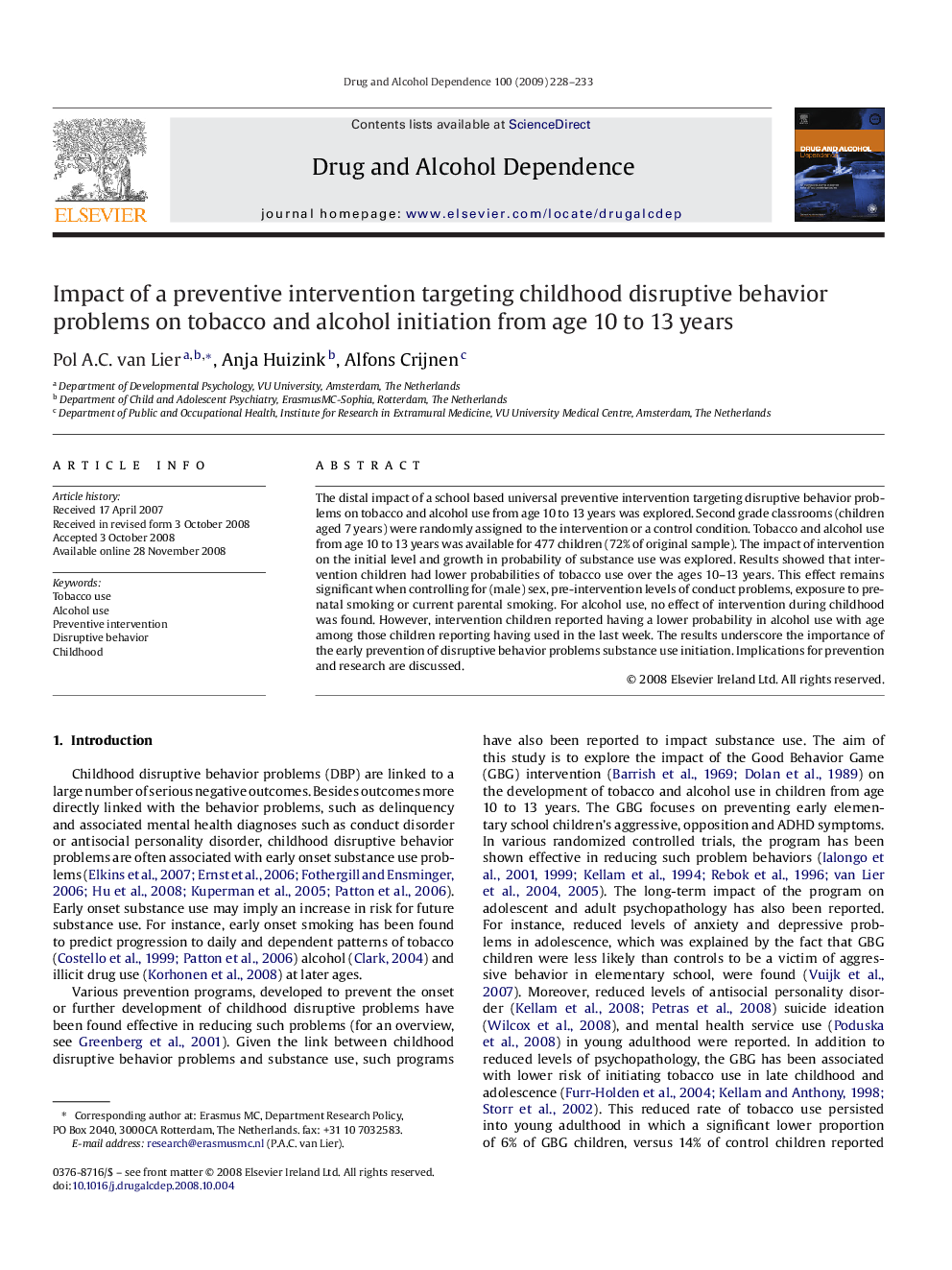| Article ID | Journal | Published Year | Pages | File Type |
|---|---|---|---|---|
| 1070886 | Drug and Alcohol Dependence | 2009 | 6 Pages |
The distal impact of a school based universal preventive intervention targeting disruptive behavior problems on tobacco and alcohol use from age 10 to 13 years was explored. Second grade classrooms (children aged 7 years) were randomly assigned to the intervention or a control condition. Tobacco and alcohol use from age 10 to 13 years was available for 477 children (72% of original sample). The impact of intervention on the initial level and growth in probability of substance use was explored. Results showed that intervention children had lower probabilities of tobacco use over the ages 10–13 years. This effect remains significant when controlling for (male) sex, pre-intervention levels of conduct problems, exposure to prenatal smoking or current parental smoking. For alcohol use, no effect of intervention during childhood was found. However, intervention children reported having a lower probability in alcohol use with age among those children reporting having used in the last week. The results underscore the importance of the early prevention of disruptive behavior problems substance use initiation. Implications for prevention and research are discussed.
